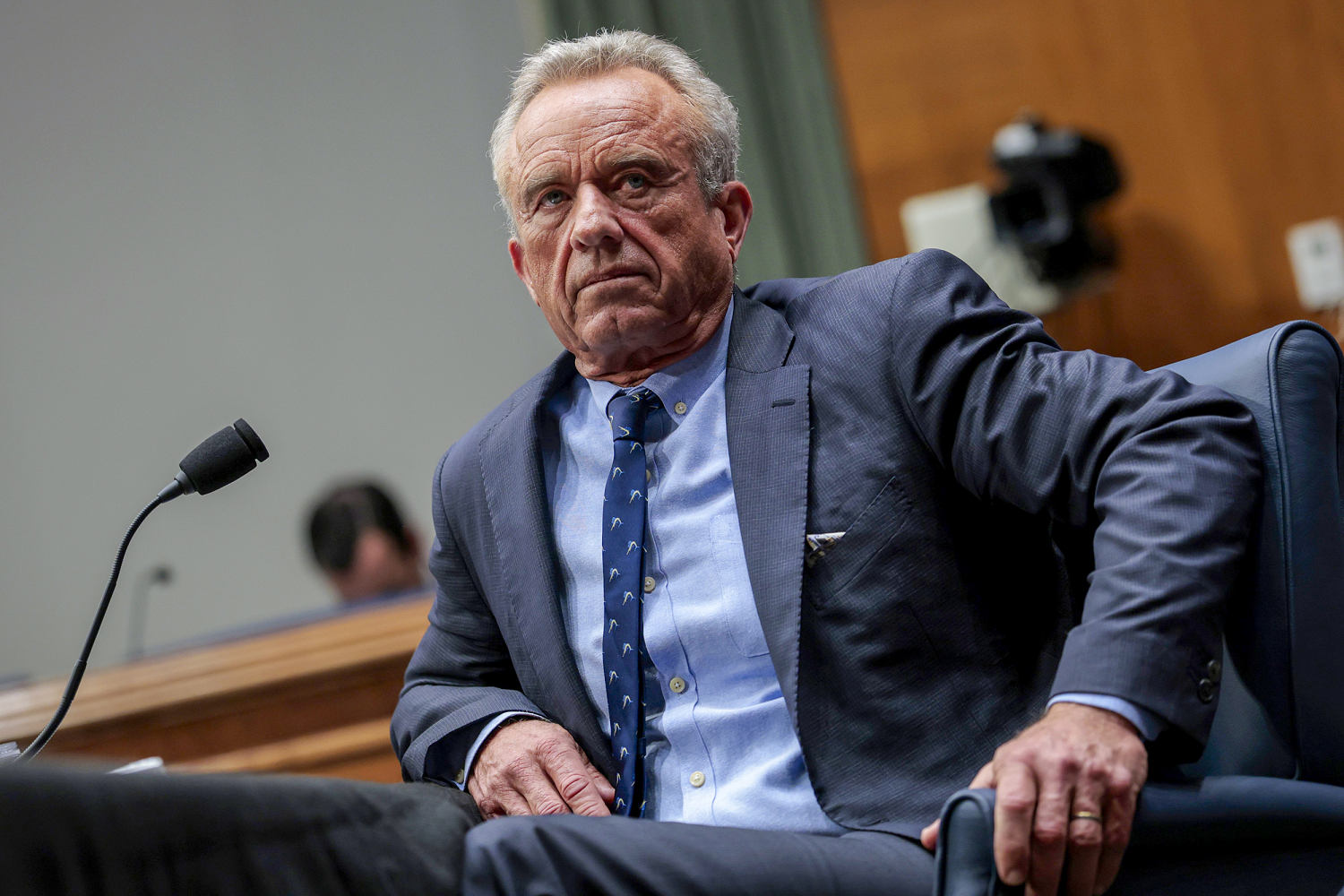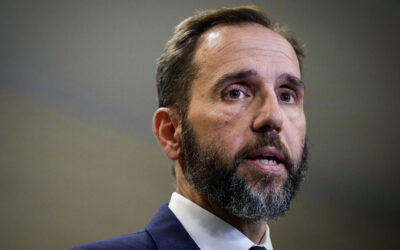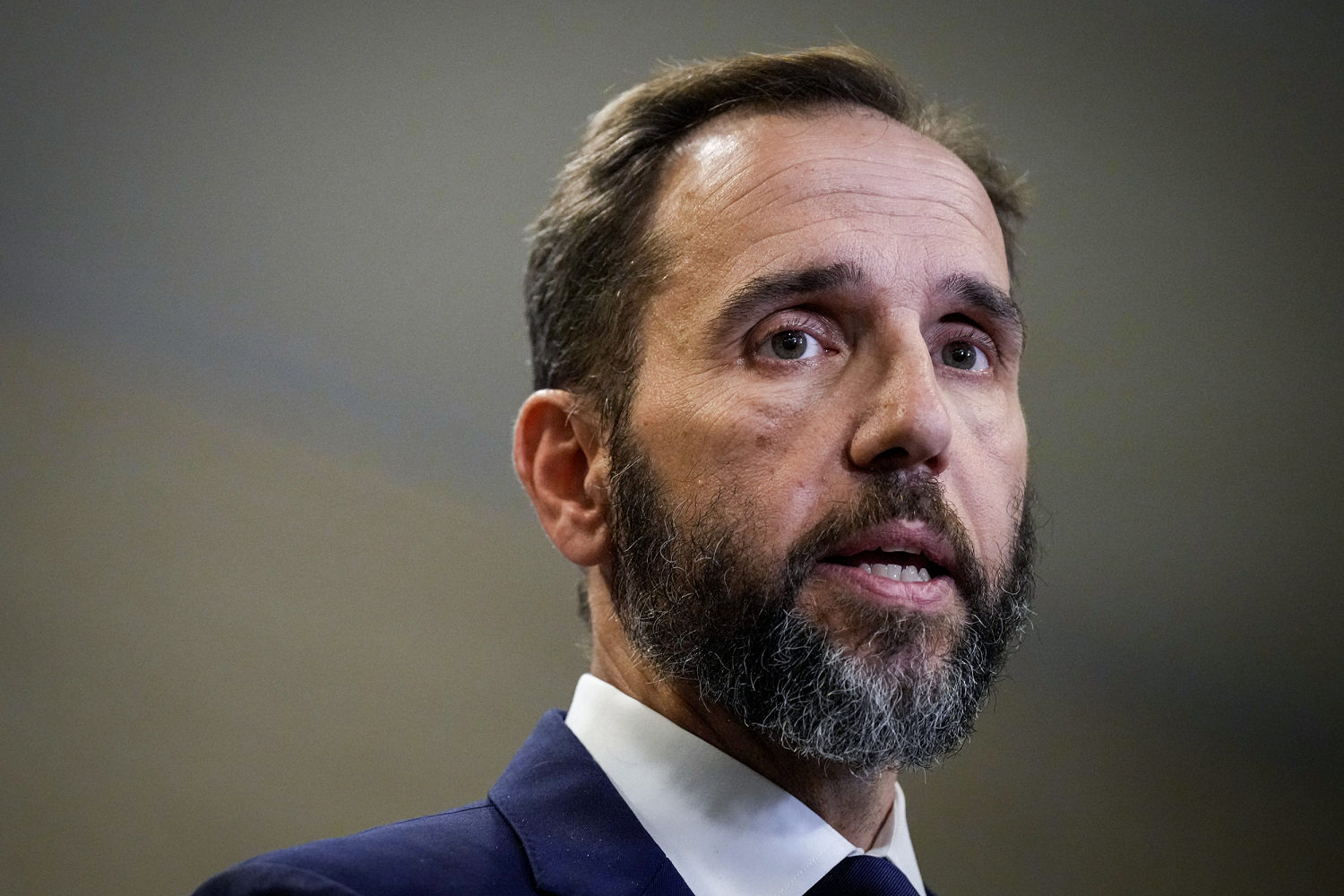Trump admin corrects RFK Jr.’s MAHA report after citation errors


The Trump administration on Thursday corrected several citations in its “Make America Healthy Again” report, adding to scrutiny of its scientific rigor. The report, led by Health and Human Services Secretary Robert F. Kennedy Jr., paints a dire picture of children’s health in the United States.
The corrections came after the nonprofit news outlet NOTUS identified several citations referencing papers that did not exist. NBC News verified that four such papers were nonexistent. One citation listed in the report as a December 2022 study published in the journal JAMA Pediatrics on changes in mental health and substance use among adolescents during the pandemic does not appear in that journal issue.
Katherine Keyes, an epidemiologist at Columbia University listed as the study’s first author, said the research was not hers.
“I can confirm that I, and my co-authors, did not write that paper,” Keyes told NBC News via email. “I was surprised to see what seems to be an error in the citation of my work in the report, and it does make me concerned given that citation practices are an important part of conducting and reporting rigorous science.”
The citation was replaced Thursday with a reference to a report on mental health and substance use in adolescents from KFF, a health policy research organization. The text of the report was also edited slightly. Whereas the original version said that 20%-25% of adolescents reported anxiety symptoms and 15%-20% reported depressive symptoms, the updated version changed those percentages to 20% and more than 15%.
The citation errors add to the strange nature of the MAHA report, released last week by the White House, which has no public authors and echoes many of the passion projects of its chair, Kennedy. The commission in charge of the report consists of high-ranking officials across various federal agencies, only two of whom are medical doctors.
The report, which stretches more than 70 pages, claims to identify four main causes of chronic diseases in children: ultraprocessed food, environmental toxins, the overprescribing of medications and sedentary, technology-driven lifestyles. It does not mention the leading cause of children’s deaths in the country: guns.
The original version contained 522 citations, seven of which mentioned papers that could not be found online or in scientific journals, according to NOTUS.
The false citations sparked some speculation that generative AI may have been used in the creation of the report. The Washington Post reported that the website URLs of some references included “oaicite,” which OpenAI’s systems are known to add to citations.
White House press secretary Karoline Leavitt on Thursday attributed the false citations to formatting issues.
Andrew Nixon, communications director for the Department of Health and Human Services, said in a statement: “Minor citation and formatting errors have been corrected, but the substance of the MAHA report remains the same — a historic and transformative assessment by the federal government to understand the chronic disease epidemic afflicting our nation’s children.”
“Under President Trump and Secretary Kennedy, our federal government is no longer ignoring this crisis, and it’s time for the media to also focus on what matters,” he added.
Two other citations in the MAHA report, referencing studies on advertising and medication use in children, did not appear in either of the scientific journals cited. The report listed the lead author of one of those papers as psychiatric researcher Robert Findling, but a spokesperson at Virginia Commonwealth University said Findling was not behind the research.
Both citations were edited out of the MAHA report Thursday. The citation that referenced Findling now directs to a 2006 paper on trends in the use of psychotropic medications. The other citation links to a 2013 New York Times article.
A fourth citation that references the overprescribing of corticosteroids for children with asthma also does not correspond to any published work. It was replaced Thursday with a reference to a study from the same researcher, pediatric pulmonologist Harold Farber. Language stating that “an estimated 25-40% of mild cases are overprescribed” was removed from the report and replaced with the line: “There is evidence of overprescription of oral corticosteroids for mild cases of asthma.”
Nixon declined to answer questions about who at HHS had authored the report or what tools may have been used in its creation. Metadata embedded in the PDF of the report lists its author as Heidi Overton, a medical doctor and deputy director in the White House Domestic Policy Council. Overton formerly served as chief policy officer at America First Policy Institute’s Center for a Healthy America, a right-wing think tank. She did not respond to requests for comment.
Many public health experts have noted that the MAHA report addresses real issues like the link between ultraprocessed foods and obesity or cancer. But some researchers have said it overstates conclusions and offers little in the way of solutions.
In a blog post Wednesday, researchers at the Cato Institute, a libertarian think tank, criticized the report’s lack of input from medical or scientific professionals. According to the researchers, “the data in the report bears little relationship to its conclusions.” They highlighted several instances where they said the report lacked context or misrepresented data. For instance, the report refers to childhood obesity as a “worsening health crisis,” but also features a graph showing that the rate of childhood obesity in the U.S. remained relatively stable over the last 20 years.
The MAHA report also warns that childhood cancer rates are rising, but does not mention that cancer deaths among that population are declining.
NOTUS similarly reported Wednesday that there were “serious issues with how the report interpreted some of the existing studies it cites.” The outlet pointed to a 2011 study cited as evidence that evening screen time from electronic devices disrupted sleep onset in children. The study’s author, Mariana Figueiro, told NBC News that it was inaccurate to link that particular paper with that conclusion.
“The conclusions in the MAHA report are incorrect and misrepresented our findings,” Figueiro, a professor at the Icahn School of Medicine at Mount Sinai, said via email. “We looked at melatonin suppression, not sleep onset. We also used college students, not children as subjects. Finally, the journal name was incorrect.”
The citation was replaced Thursday with a 2021 review, which found that electronic media use was associated with less sleep in children in Western countries.





